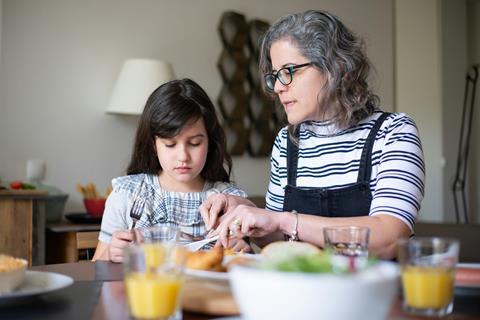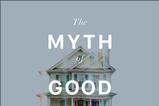Kate Orson helps Christian parents look behind the lies their children tell to see what is going on beneath the surface

As Christian parents we know how important it is to teach children to tell the truth, so how is the best way to go about dealing with lies in the moment, and preventing them in the future?
Perhaps it starts with us. A number of studies have found that the majority of people tell white lies on a daily basis. In fact, one study from the University of Massachusetts found that 60% of people lied in just a short ten minute conversation.
White lies can be tempting, appearing to make parenting and life easier. If you tell your child there’s no chocolate in the house, you don’t have to have a long debate about whether or not you can eat it. If you tell your friend you’re ill, you can avoid a party you don’t feel like attending without being judged.
even white lies affect our physical and mental health
However, an interesting study on the ‘Science of Honesty’ from researchers at Notre Dame University has found that even white lies affect our physical and mental health. In the study, half the participants were asked not to tell major or minor lies for ten weeks. The other half weren’t told anything about lying. Each week the participants went to have their health assessed, and to take a polygraph test to assess the lies they told. It was found that participants in the no-lie group experienced on average about four fewer mental-health complaints, and three fewer physical health complaints than those who were not given any instructions about not lying.
It’s clear God gave his commandment not to lie for very good reasons, and it’s not just about the big lies, but the little ones too.
When it comes to our children, we want to set a precedent, that telling the truth is a value we hold ourselves. While it might be tempting to tell a lie when we aren’t going to get found out, our children probably sense when we aren’t telling them the whole truth. Now, once we’ve taken an honest look at our own truth telling, we can figure out how to tackle our child’s lies.
‘Lying’ is a part of a child’s cognitive development, and their developing imagination
There are different types of lying, and some appear to be less ill-intentioned than others. Take for example the ‘tall tales’ that young children tell. It’s hard to see the harm in a child telling stories about a tiger coming to nursery or a unicorn living in the wardrobe.
‘Lying’ is a part of a child’s cognitive development, and their developing imagination. You might actually listen to your child stories and feel quite proud of their creative abilities! After all this is what professional novelists do - make up ‘lies’ for entertainment and amusement.
There might come a point, when tall tales become a way to cover up sinful behaviour - for example, saying an imaginary friend messed up the toys or ate all the biscuits.
There are other kinds of lies that children tell, often for similar reasons that adults do. They might lie to avoid doing something they don’t want to do; e.g. pretending they tidied their room, when actually they just pushed everything under the bed. They might lie to avoid a punishment or consequence; claiming a sibling started a fight when it was actually them. They might lie to make themselves look better, for example they pretend they won first place in a race when they actually came second. Research has also found that children lie for ‘prosocial’ reasons. For example, if someone is sad, they will tell a ‘white’ lie to cheer them up.
Lying is a sin, but when we come down hard on it, with punishments, and lectures, it creates an environment where lying is actually more likely to occur
At the heart of it, lying is a fictionalising of reality; creating a different story because the true one feels too painful and difficult to admit. This is important to understand so that we bring empathy to the situation.
Lying is a sin, but when we come down hard on it, with punishments, and lectures, it creates an environment where lying is actually more likely to occur. Children may lie in the future to avoid punishments, or a feeling of being blamed and shamed.
Deep down, children know that lying is wrong. The bodily response to lying measured by the polygraph in the Notre Dame study shows that all of us have a conscience and don’t feel comfortable even with the whitest of lies. What we need to do is create an environment where children feel safe and comfortable sharing the truth.
We can do this, by being really present with our children. When they tell us about their day, or about the new computer game they are playing, we can listen and show interest. We can bring a non-judgemental ear to what they are going through, allowing them space to work through their challenges.
If you discover your child has lied, then the best thing you can do is to help them figure out how to fix the situation
One regular way we can create the safety for truth telling is something called ‘special time.’ Special time is when you set a timer for a set period - for example 10-15 minutes and tell your child they can do whatever they like with you. Keep your phone turned off and shower them with warm attention, as you do whatever they choose. Don’t try to direct the play. Don’t choose what you do or judge their choices. Just let your child take the lead.
Done regularly ‘special time’ creates a deep connection so children feel accepted for who they are. With older children special time could look like a ‘yes’ day - giving your child the opportunity to choose whatever they’d like to do for a day.
Read more:
3 ways Christian parents can help their teenagers see who God really is
4 takeaways for Christian parents from David Attenborough’s new BBC animal documentary: Parenthood
The rise of permissive parenting, and how to take a gentle but biblical approach
If you discover your child has lied, then the best thing you can do is to help them figure out how to fix the situation, in a way that does not let them avoid the consequences but doesn’t dish out punishments that lead to disconnection.
For example, if they hid their mess under the bed, it could be because they were feeling overwhelmed at dealing with it alone. A light, “I think we better sort the mess out, don’t worry I can help you” means you help them fix the problem without letting them off the hook entirely.
If your child is lying about winning a race, the underlying issue could be a lack of confidence in themselves and their own abilities. Challenging them to a playful race, at a later date, and ‘letting’ them win, (while not making it too obvious!) can be a way to diffuse tension about always being last so they are less likely to lie.
Modelling confessing lies yourself, can also contribute to the feeling of safety; that we all sin, we all mess up, but we as parents are there to love, support and forgive, just as Jesus is.


































